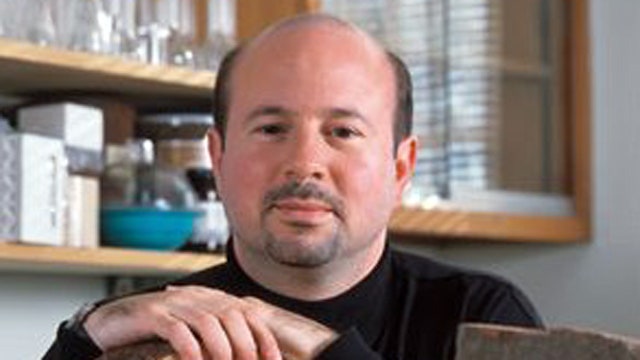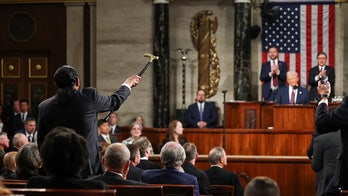WASHINGTON – News outlets, advocacy groups and fellow think tanks are jumping to the defense of a conservative-leaning D.C. policy center and publication being sued for libel by a scientist who didn't like what they had to say about his work on global warming.
Michael Mann, a prominent professor of meteorology at Pennsylvania State University, has long been a target of climate change skeptics for his work claiming temperatures have risen dramatically in recent decades, and has sued before when groups tried to debunk his data.
But this time, Mann is being accused of going too far with his case against the Competitive Enterprise Institute, National Review and others. Critics say the suit threatens to violate constitutionally protected rights to opinion and fair comment, particularly in an area of scientific debate.
On Monday, The Reporters Committee for the Freedom of the Press -- along with 26 other groups including The Washington Post, Bloomberg and Fox News -- filed an “amici curiae,” or “friend of the court,” brief with the D.C. Court of Appeals. An amici curiae is a brief submitted to a court to raise additional points of view to sway a court’s decision.
“While Mann essentially claims that he can silence critics because he is ‘right,’ the judicial system should not be the arbiter of either scientific truth or correct public policy,” the brief states, adding that “a participant in the ‘rough-and-tumble’ of public debate should not be able to use a lawsuit like this to silence his critics, regardless of whether one agrees with Mann or defendants.”
The suit was originally filed after Rand Simberg at the Competitive Enterprise Institute wrote a piece referring to Mann as “the Jerry Sandusky of climate science” because he “molested and tortured data in the service of politicized science.”
CEI eventually took down the statements but not before National Review writer Mark Steyn picked them up and took it a step further by calling Mann’s research fraudulent.
Mann responded by suing CEI, National Review and the authors of the pieces.
But others in the media and think tank circuit are using the case to draw a line in the sand. Also coming to their defense are The Cato Institute, Reason Foundation, Individual Rights Foundation and Goldwater Institute. The policy groups filed their own brief in support of CEI and National Review.
“Public figures must not be allowed to use the courts to muzzle their critics,” Cato's Ilya Shapiro wrote on the group's website earlier this week.
Cato argues that under the First Amendment, there must be room for “the marketplace of ideas to operate.” Shapiro voiced concern that the court could try to judge the defendants' opinions as false by weighing them against EPA findings.
“The point in this appeal is that courts should not be coming up with new terms like ‘scientific fraud’ to squeeze debate over issues impacting government policy into ordinary tort law,” Shapiro said. “Dr. Mann is not like a corner butcher falsely accused of putting his thumb on the scale or mixing horsemeat into the ground beef. He is a vocal leader in a school of scientific thought that has had major impact on government policies.”
In July, a D.C. court dismissed a claim by the defendants that the statements made against Mann were protected under the First Amendment. The court also ruled that there was enough evidence of “actual malice” for the suit to go forward.
CEI’s attorney Sam Kazman argues that “all Americans engaged in public debate and discourse on contentious political issues will be affected by the outcome of our case.”
Mann’s case has become a lightning rod in the political battle over global warming and has pit some in the scientific community against conservative-leaning groups and those who say humans are not to blame for changes in climate.
In July, the Virginia Supreme Court ordered that the Energy and Environmental Legal Institute pay Mann and the University of Virginia – where Mann had previously worked -- $250 in damages.
The Energy and Environmental Legal Institute had wanted to get Mann’s records as part of a campaign to disprove his research on climate change. The court ruled that Mann’s unpublished research, which included emails about global warming, were exempt from the Virginia Freedom of Information Act.












































